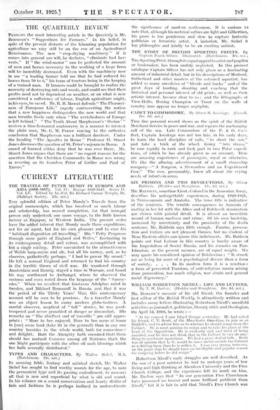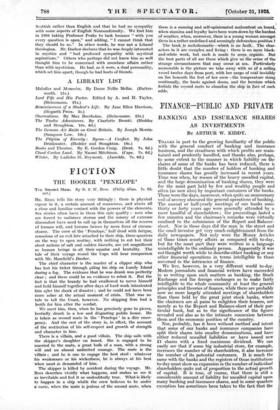Ma. DARLOW'S memoir of his old friend, the founder and
first editor of the British Weekly, is attractively written and includes many letters illustrating Robertson Nicoll's manifold activities as journalist, politician, literary critic and theologian. On April 13, 1916, he wrote :- " At his request I saw Lloyd George yesterday. He had asked his friend, C. P. Scott, of the Lloyd_ Guardian, to join us at Riddell's, and to advise him as to whether he should resign from the Cabinet. He is most anxious to resign and to take his place at the head of the Opposition. He is evidently sick and tired of being muzzled, and he does not think.that in the Cabinet he can do any- thing to accelerate operations. We had a great deal of talk. SCott was of opinion that L. G. would be more useful outside the Cabinet as a driving force than he is within it. I was very strong. however, on the point that ho should have an intelligible and popular reason for resigning before lie did resign."
Robertson Nicoll's early struggles are well. described. As the son of a poor minister he had to undergo years of low living and high thinking at Aberdeen University and the Free Church College, and the experience left its mark on him. Mr. DarloW says that " In our generation Free Churchnien have possessed 'no braYer and more brilliant publicist than Nicoll," but it is fair to add -that Nicoll's Free Church was Scottish rather than English and that he had no sympathy with some aspects of English Noncomformity. We find him in 1898 taking Professor Peake to task because " with you every question is open," and adding, " I cannot think that they should be so." In other words, he was not -a Liberal theologian. -Mr. Darlow declares that he was deeply interested in mystics and " had profound sympathy with mystical aspirations." Others who perhaps did not know him so well thought him to he concerned with mundane affairs rather than with mysticism. He had, as it were, a dual personality, which set him apart, though he had hosts of friends.































































 Previous page
Previous page